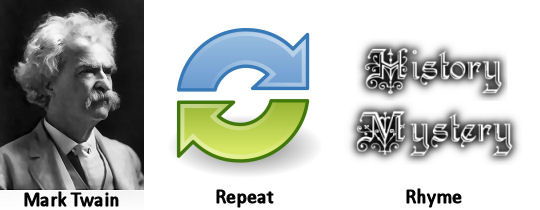Groucho Marx? Apocryphal?
Question for Quote Investigator: Groucho Marx became famous on Broadway before moving on to starring roles in Hollywood. His comical skills and adaptability also allowed him to master radio and television. Yet, reportedly one of his sharpest remarks playfully disparaged TV:
I find television very educational. Every time someone switches it on, I go into the other room and read a book.
I have been unable to confirm this quotation with a solid source. Would you please tell me if these were the words of Groucho?
Reply from Quote Investigator: Two distinct versions of this remark appeared in 1950. One version was included in a short essay written by Groucho Marx for the periodical “Tele-Views” which was similar to “TV Guide”. The main purpose of the article was to convince readers to tune in to a new television program to be hosted by Groucho commencing October 1950. The program was a televised adaption of the comedian’s already popular radio quiz show “You Bet Your Life”. The piece “King Leer” was reprinted in the collection “The Essential Groucho: Writings by, for, and about Groucho Marx”:1
I must say I find television very educational. The minute somebody turns it on, I go into the library and read a good book.
That’s a pretty cynical attitude for “the leer”—that’s me, Groucho—and now that I’m a part of television, or “TV” as we say out here on the Coast, I don’t mean a word of it.
The text ended with the following suggestion:
All I can say is this: Walk, don’t run, to your nearest television set in October, tune to KNBH, and join us for our first TV session of You Bet Your Life. I think you’ll like it.
QI has not yet identified the precise issue of “Tele-Views” that contained the essay though the final sentence above clearly indicated that it ran sometime shortly before October 1950. In addition, the book “Groucho Marx and Other Short Stories and Tall Tales” asserted that the piece ran in September:2
A September 1950 piece called “King Leer” appeared in television listings around the country to promote the impending debut of the television version of “You Bet Your Life.”
The second version of the quotation was published in the August 1950 issue of the mass-circulation “Reader’s Digest” as a freestanding short item:3
I find television very educating. Every time somebody turns on the set I go into the other room and read a book. —Groucho Marx
It is possible that the editors of “Reader’s Digest” had access to a draft of Groucho’s essay in advance, or they may have been sent the quote by a publicist.
Interestingly, the common modern wording of the quotation combined elements of the two early versions above from 1950. Version one used “educational”, and version two used “educating”. Version one referred to “the library”, and version two referred to “the other room”. The modern instance used “educational” and “the other room”.
QI believes that the first version which was written by Groucho has the most support and should be given preference.
Here are additional selected citations in chronological order.
Continue reading “Quote Origin: What Did Groucho Marx Do When Someone Switched On a Television?”